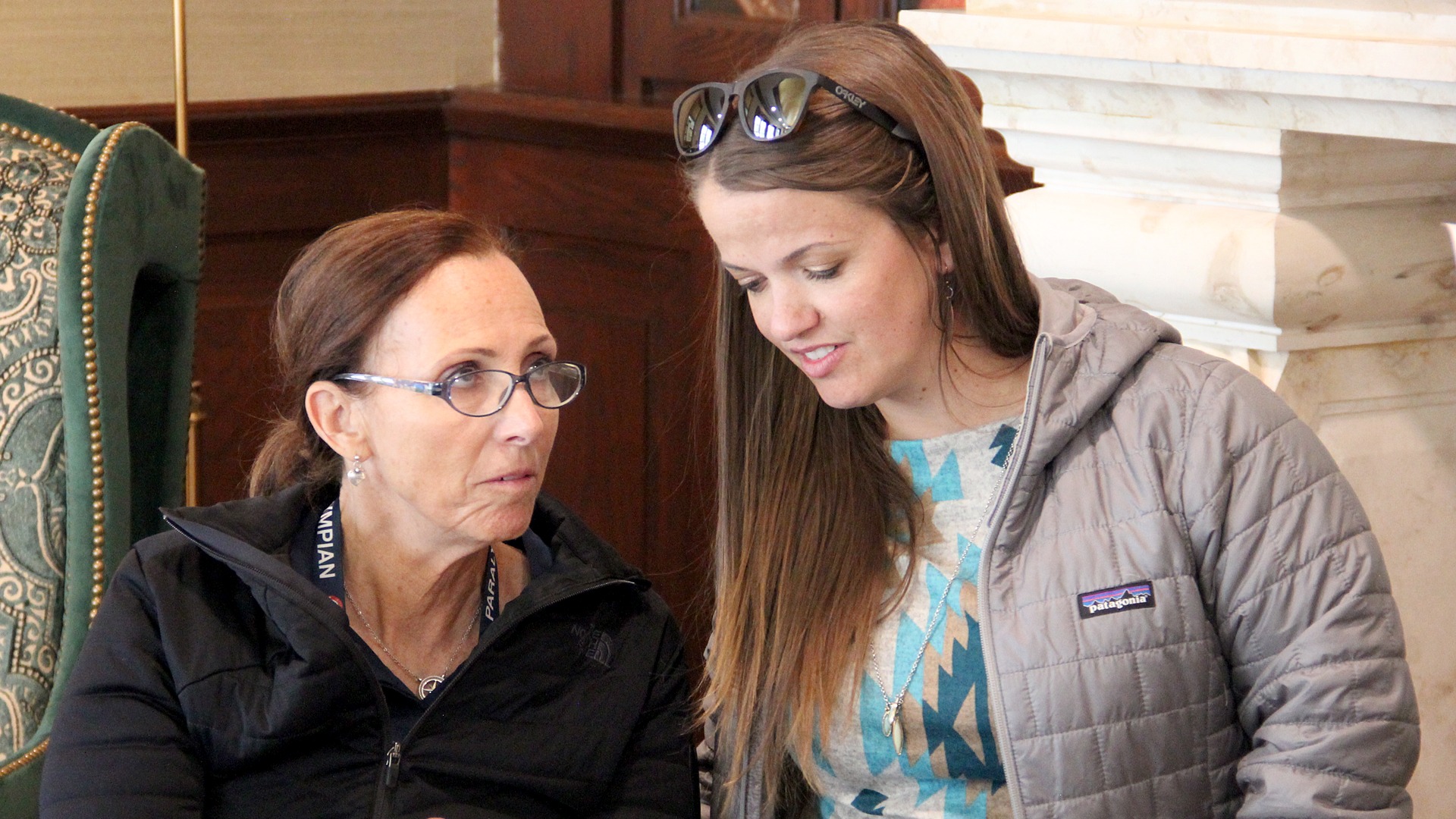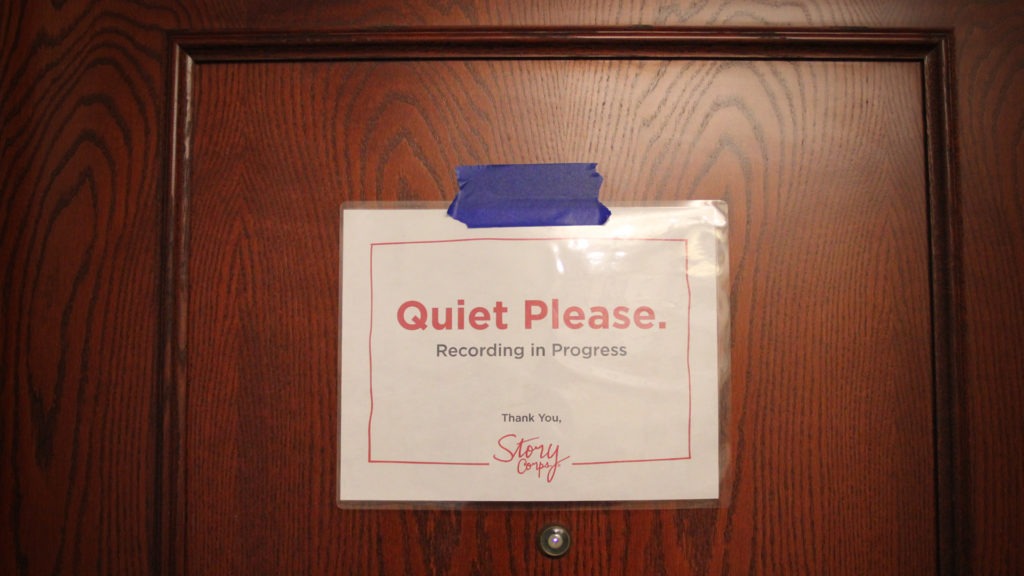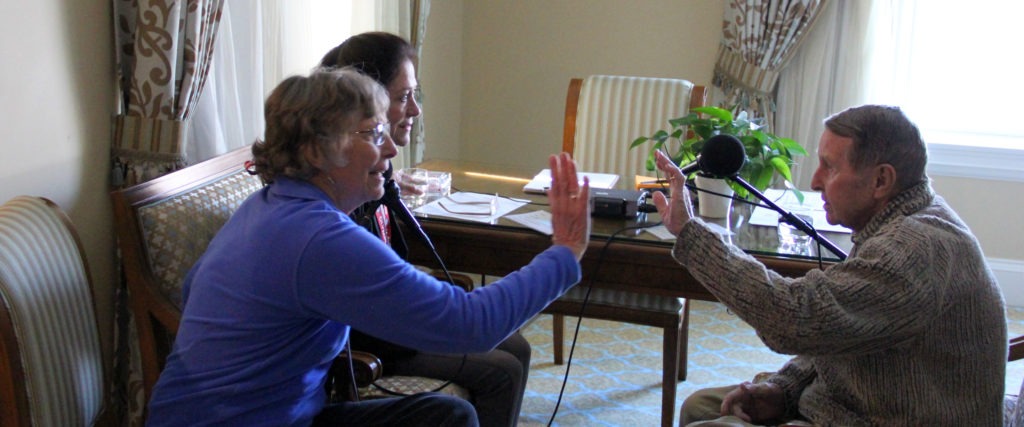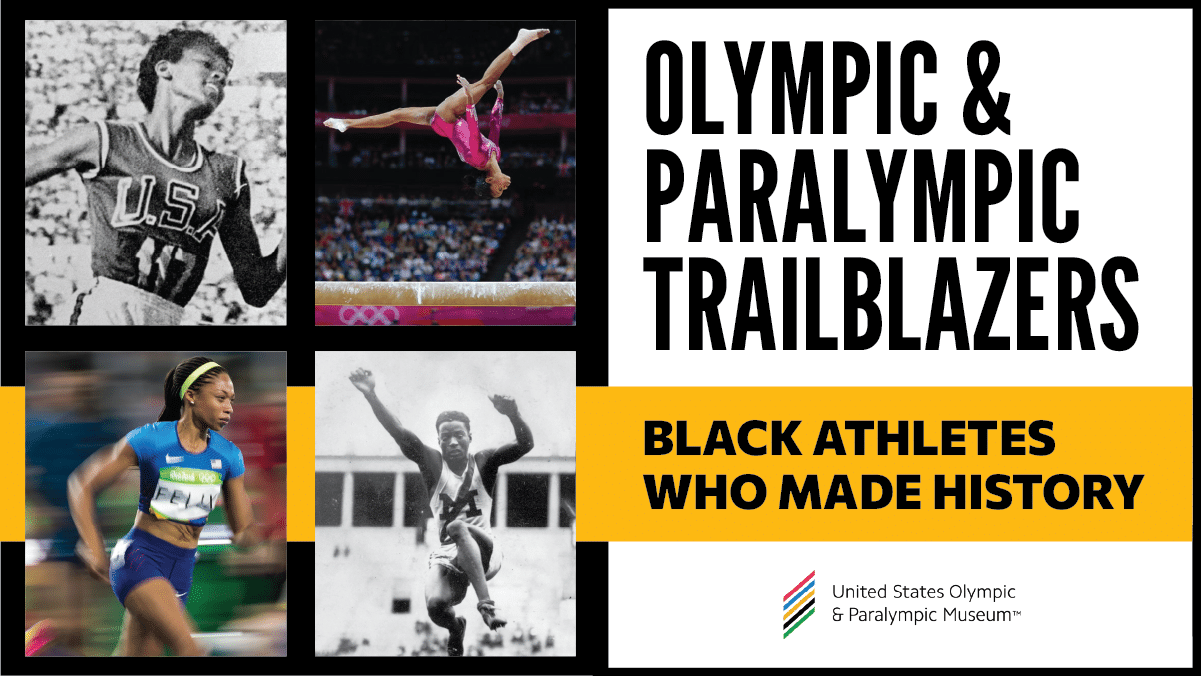As she retired from competitive diving following the Munich 1972 Olympic Games, Micki King saw fellow American Jennifer Chandler as the heir apparent. But King never spoke to Chandler about it – until this week, when the two Olympic gold medalists sat down with longtime U.S. Diving Team coach Ron O’Brien as part of an oral history project at the U.S. Olympian & Paralympian Reunion in Colorado Springs.
In conjunction with the Reunion, the soon-to-open U.S. Olympic & Paralympic Museum partnered with nationally-recognized StoryCorps to conduct and preserve meaningful conversations between the athletes, coaches and/or family members. With so many Olympians and Paralympians traveling to Colorado Springs, the weekend provided the unique opportunity to allow participants to preserve their stories.
StoryCorps interviews are 40 minutes of uninterrupted, meaningful conversation between people who know each other or share common experiences. The conversations are then archived at the American Folklife Center at the Library of Congress. Select stories will be shared with the public through StoryCorps’ weekly podcast, NPR broadcasts and more.

“What a wonderful way for these amazing athletes to share their stories so that the next generation of athletes and those that follow can learn from their successes and triumphs,” U.S. Olympic & Paralympic Museum Chief Executive Officer Christopher Liedel said. “We are very appreciative of our partnership with StoryCorps and thankful for our athletes being generous with their time and stories.”
That was the thought that resonated with King, who noted that her conversation with Chandler and O’Brien flowed easily and provided the opportunity for them to discuss their experiences. O’Brien was part of the U.S. Olympic & Paralympic Hall of Fame Class of 2019 that was inducted at a ceremony on Friday night.
“Seeing Jennifer years after and talking about how that worked was really fun,” King said. “I hoped that it would be as casual as it was. Clearly it was easy and because it was easy and comfortable, we were able to let our feelings come without feeling like we had to be careful with what we said.”
Preserving history is important, King said.
“It’s actually critical,” King said. “Too much of what is going on today could get lost or forgotten. And let’s just say it, people aren’t reading as much as they used to. Having this taped and having it reachable is really important. Today’s young kids need to know what was laid in front of them, to prepare to move forward. So this is really big.”
Olympians Connie Carpenter-Phinney and her husband Davis Phinney took some time on their drive from Boulder, Colorado, to discuss the things they wanted to share during their StoryCorps interview. Connie, who was a figure skater at the Sapporo 1972 Olympic Winter Games and won a cycling gold medal at the Los Angeles 1984 Olympic Games, loved the format, noting that it was rare that she and Davis were interviewed together. Davis, who won a cycling bronze medal at the Los Angeles Games, was diagnosed with Parkinson’s Disease in 2004. The couple’s son, Taylor, is a three-time Olympic cyclist, putting the Phinneys in the unique position of having both competed in the Olympic Games and as the parents of an Olympian.
Another StoryCorps conversation was between swimmers John Naber and Gary Hall Sr., who were teammates in the Montreal 1976 Olympic Games. While Naber and Hall knew each other well, they found the intimate format of the conversation provided glimpses into each other’s lives that they were previously unaware of.
“I learned stuff about Gary that I had no idea about,” Naber said. “It made me realize this is a bigger deal than I thought it was going to be. This isn’t just a guy with a tape recorder. This is someone with a mission of getting a recording of real-life happenings. Being interviewed by a friend allowed me to really open up.”










